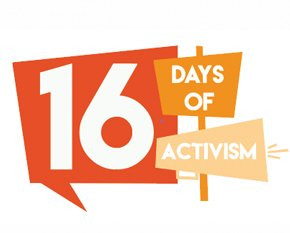
WATER is essential for life, it is a scarce resource in many parts of Africa, and it is also the first ingredient in the products made by Coca-Cola Beverages Africa (CCBA). Plastic, on the other hand, has become an indispensable part of modern life, especially in its role as a hygienic, affordable, lightweight and convenient packaging material for food and beverage products, yet is also a threat to the sustainability of the continent’s water sources.
Africa is blessed with some of the world’s most significant freshwater bodies, which support agriculture, human settlements and economic activity for millions of people, as well as being vital habitats for aquatic life.
Unfortunately, plastic waste pollution is threatening the health of these water bodies.
The issue is compounded by poor waste management systems, pervasive littering and a lack of suitable waste management infrastructure. Many people simply don’t know how to dispose of plastic waste properly.
Responsible water stewardship and managing plastic waste therefore go hand in hand.
CCBA, together with The Coca-Cola Company, are leaders in using water responsibly in our operations and giving it back. We continue to manage water resources through country projects that reduce water use in our operations, protect local water resources and provide safe, clean drinking water to communities in need.
Across all our facilities, we put water protection plans in place so our presence doesn’t harm communities’ vital water resources.
Because people need water to thrive, we support local water access projects that help bring safe, clean drinking water to communities in need.
- Plastic carrier bag ban postponed
- Of Harare’s silent waste scavengers
- African ministers of environment need to implement policies to stop plastic pollution
- Power cuts hamper Proplastics production
Keep Reading
In Tanzania we have partnered with the Water and Development Alliance (WADA) Tanzania: Entrepreneurship for Resilient Village Water Systems since 2018, enabling 70,000 rural Tanzanians in 14 communities countrywide to have safe water access through solar-powered water systems. In South Africa, our Coke Ville Project, an off-grid, solar-powered groundwater harvesting and treatment system, has provided over 400 million litres to over 25 000 households experiencing water insecurity.
With regard to plastic waste, our commitment is to invest in our planet and our packaging, to help make the world’s packaging problem a thing of the past. We work in partnership with The Coca-Cola Company which launched a sustainable packaging initiative called World Without Waste in 2018.
The global targets include:
lHelp collect a bottle for every one we sell by 2030
lFocus on making all our packaging 100% recyclable by 2025
land make 25% of our packaging reusable by 2030
We believe that industry led and managed Extended Producer Responsibility (EPR) is a sustainable funding approach which ensures that producers of brands take full responsibility for the choice of packaging they place on the market, and enable the collection and recycling value chain for packaging.
Coca-Cola and other like-minded industries came together in 2004 to set up such an industry funded and self-regulated EPR scheme, the PET Recycling Company (PETCO) in South Africa, to promote and regulate the recycling of PET plastic, taking responsibility for recovering and recycling beverage PET plastic bottles. If done the right way, PET waste management comes with significant investment and economic opportunities.
The PETCO model has proven so effective it is now being rolled out to eight other African countries.
To increase consumer and community awareness and clean up existing packaging, we’re bringing people together through programmes like beach and river clean ups and other local activities. To encourage more people to recycle more often, we’re investing to help people understand what to recycle, how to recycle, and where to recycle.
And we are reimagining our packaging to make it better for our planet and our business. We are working to make packaging part of a circular economy, placing a strong emphasis on packaging design, and expanding the use of clear and returnable plastic bottles.
We are well on our way to achieving our ambition of a 100% recycling rate. As at the end of 2021, Coca-Cola Beverages Africa achieved a 84% collection and recycling rate (industry 41%). Leading countries were Kenya (141%), Ethiopia (138%), Tanzania (95%) and Zambia (92%).
The problem of plastic waste in Africa, and its impact on water resources, requires concerted efforts from governments, corporates, civil society organisations and individuals. By working together, we can create a more sustainable future for African water bodies and the communities that depend on them.-Jacques Vermeulen CEO Coca-Cola Beverages Africa
Pollution negatively impacts human health, ecosystems
THE Citizens in Action Southern Africa this week joined the rest of the world in commemorating this year’s World Environmental Day (WED) under the theme Solutions to Plastic Pollution Beat Plastic Pollution.
As we commemorated this year’s WED, we reminded ourselves the world every year produces over 400 million tonnes of plastic every year and plastic pollution has become a complex issue affecting land, freshwater, and marine ecosystems. The complexity negatively impacts human health ecosystems, important economic activities and contributes to climate change. This is a worldwide problem, spreading far beyond national boundaries and affecting all ecosystems, and must be managed if efforts to eliminate it are to be effective and equitable.
The world has witnessed the development of numerous international multilateral environmental agreements to address plastic pollution, including the Convention on Biological Diversity (CBD) Global Biodiversity Framework Target 7, the Basel, Rotterdam, and Stockholm Conventions, the preamble of the new High Seas Treaty, as well as multiple WTO trade agreements, nevertheless, the environment is in greater peril than before, signifying the importance of this weeks WED commemorations.
Human lives are at greater risk and the growing frequency and severity of natural disasters put developing countries like Zimbabwe and many in Sadc region under greater strain as global warming continues to accelerate at an increasing rate. Within decades if there is no co-ordination across these commitments, biodiversity will be severely threatened,and more than one million species will face extinction.
CIASA applauds the international efforts to beat plastic pollution, as this going forward will be central to addressing the three interlinked planetary crises of climate change,pollution, and biodiversity loss. To help reduce the heavy load of plastic pollution from our everyday lives this year’s World Environment Day theme,“Beat Plastic Pollution” must be taken very seriously.
CIASA welcomes the ongoing process by the Intergovernmental Negotiating Committee (INC) to agree on a legally binding treaty to tackle plastic pollution and we believe this will create a platform for critical coalitions to contribute scientific knowledge and technical expertise throughout the INC process. The CIASA hopes that with further international and regional cooperation, chances for the protection of the environment and reduction of threats against it will come about.
As CIASA we are hopeful international and regional cooperation will help facilitate new national policies and plans to manage waste, and plastic pollution as well as foster alternative value chains and circular economic models. We hope a world free of plastic waste can strive beyond World Environment Day.-CIASA Communications











